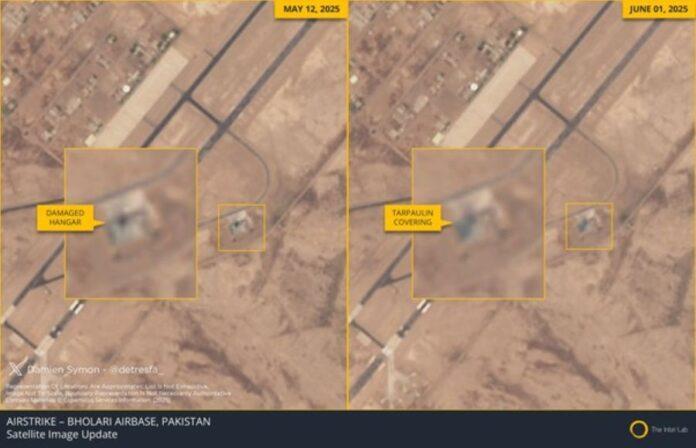
Pak Floats Over 30 Emergency Tenders to Repair Military Bases
In a telling sign of the intensity and precision of India’s Operation Sindoor, Pakistan has issued more than 30 emergency tenders to repair airbases and military infrastructure damaged during the cross-border strikes conducted between May 7 and 10. The repair contracts, amounting to millions of dollars, signal the scale of disruption inflicted on Pakistan’s air defence and support systems.
The recent operation, carried out by the Indian Air Force (IAF), was a bold and decisive move to demonstrate India’s capability to strike at the heart of Pakistan’s military infrastructure. The operation, codenamed Operation Sindoor, saw the IAF launch multiple waves of airstrikes against Pakistan’s military bases, airfields, and communication networks. The strikes were aimed at crippling Pakistan’s ability to respond to future Indian military operations and to punish the country for its continued support of terrorist groups operating in Kashmir.
Pakistan, reeling from the surprise attacks, has been scrambling to repair the damage and restore its military capabilities. The emergency tenders, floated by the Pakistan Army and the Pakistan Air Force, are a testament to the scale of destruction caused by the Indian airstrikes. The tenders, worth millions of dollars, are being issued to repair damaged airbases, hangars, and communication infrastructure, as well as to replace destroyed military equipment and supplies.
The damage caused by the Indian airstrikes is significant, with multiple reports emerging of damaged aircraft, destroyed bunkers, and destroyed communication networks. The strikes also caused significant disruption to Pakistan’s air traffic control systems, with reports of aircraft being forced to make emergency landings due to the loss of navigation aids.
Pakistan’s military leadership has been forced to scramble to respond to the crisis, with reports emerging of emergency meetings and briefings being held at the highest levels. The country’s military commanders are said to be working around the clock to assess the damage and to develop a plan to restore military capabilities.
The emergency tenders are being issued to a range of contractors, including local and international companies. The tenders are expected to be awarded within the next few weeks, with work expected to commence shortly thereafter. The repair work is expected to be completed within a few months, although this timeline may be affected by the scale of the damage and the availability of resources.
The issue of the emergency tenders is a significant development in the ongoing tension between India and Pakistan. The operation, carried out by the Indian Air Force, was a bold and decisive move to demonstrate India’s capability to strike at the heart of Pakistan’s military infrastructure. The operation was a response to the Pulwama attack, in which a suicide bomber attacked a bus carrying Indian security personnel, killing dozens.
India, which has accused Pakistan of supporting the terrorist group responsible for the attack, launched a series of airstrikes against Pakistan, targeting military bases and infrastructure. The operation, carried out in the early hours of May 7, was a surprise move that caught Pakistan off guard.
Pakistan, which has denied any involvement in the Pulwama attack, has been scrambling to respond to the crisis. The country’s military leadership has been forced to go on high alert, with reports emerging of emergency meetings and briefings being held at the highest levels.
The situation is expected to remain tense in the coming days, with both countries maintaining a high level of military alertness. The issue of the emergency tenders is a significant development in the ongoing crisis, and is likely to be closely watched by military analysts and observers around the world.






